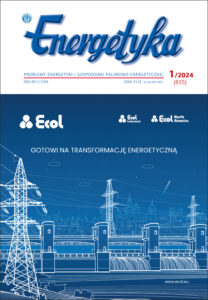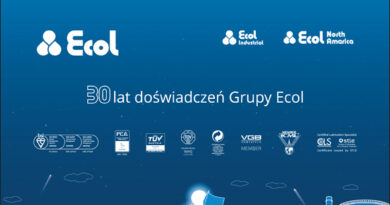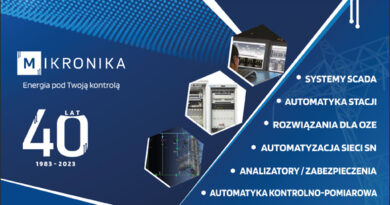January 2024, Issue 1 (835)
TABLE OF CONTENTS
PARTON SEP IN 2024
Janusz Nowastowski
The creator of the electrical industry in the reborn Bydgoszcz, Eng. Stefan Ciszewski
Waldemar Jędral
Transformation of the Polish power engineering in the climate neutrality aspect
Discussion article
Anna Gorczyca-Goraj
Small reactor, big deal – a step in evolution or revolution in Polish energy
Bogumił Dudek
Topic, eristic and rhetoric in social communication of investment processes in energy industry
(topoi: nuclear and wind energy industry and energy saving)
SEP. EVENTS, FACTS, OPINIONS
Piotr Szymczak, Ryszard Łukaszuk, Michał Cichowicz
Press conference dedicated to the publication of the monograph
„Michał Doliwo-Dobrowolski and three-phase alternating current”
Marcin Szega
From the work of the Energy Commission of the Polish Academy of Sciences in Katowice.
Meeting on November 16, 2023
OVERTIME LECTURE….
Bogumił Dudek
Superposition and entanglement
SUMMARIES
Waldemar Jędral
Transformation of the Polish power engineering in the climate neutrality aspect
Discussion article
The European Green Deal with the Fit for 55 package and new regulations in the field of road transport aim to achieve climate neutrality by the EU by 2050. The article discusses the real chances of achieving the power engineering transformation in Poland at that time, taking into account the need to also transform other areas of economy that completely eliminates fossil fuels. The demand for electricity of the entire economy was estimated, including: transport and heating, after transformation. Building renewable energy sources (RES) in Poland with the highest possible capacities of onshore wind farms (80 GW), offshore wind farms (20 GW) and photovoltaic farms (92,5 GW), even supported by energy storage facilities with large capacities (3500-4000 GW) and nuclear power plants with a capacity of 15-20 GW, may not meet the demand. It will be necessary to radically reduce the amount of electricity collected from the network by a significant increase in the energy efficiency of production and operational processes throughout the economy and the widespread installation and operation of distributed RES using wind, solar, water and geothermal energy by all users. The waste of large amounts of electricity and heat should also be significantly reduced.
Anna Gorczyca-Goraj
Small reactor, big deal – a step in evolution or revolution in Polish energy
The European Commission presented a set of initiatives known as the European Green Deal [1], indicating the direction of development for member states, namely in 2050 Europe is to be the first climate-neutral continent. With this ambition the world of politics creates a vision of modern climate and industrial policy. Companies that consume a lot of energy need green electricity if they intend to make their production processes climate neutral. The energy transformation is also accompanied by the dynamic development of the power grid, both at the transmission and distribution levels. The networks are to constitute a central interface for energy applications that so far have been mainly based on fossil fuels, in transport, heating and industrial processes. Poland cannot base the energy production on coal any longer. It is necessary to diversify energy production, i.e. introduce various energy sources assuming their low emission. However, the EU’s climate policy is not the only motivation, it is also about purely economic reasons related to Polish mining. In order to meet the requirements and changes in the European energy sector, the development of nuclear energy in Poland is planned in both ways, i.e. the conventional and small modular reactors. The article presents the differences between these technologies, with an emphasis on the potential of small modular reactors (Small Modular Reactors, SMR).
Bogumił Dudek
Topic, eristic and rhetoric in social communication of investment processes in energy industry
(topoi: nuclear and wind energy industry and energy saving)
Polish energy transition means new generation sources, rebuilding and strengthening of critical infrastructure as well as of transmission and distribution networks and also a new quality in industrial engineering. Appearance of new economic phenomena needs also cooperation with local communities and the society for which and with which the processes of investments’ locations should be consulted. Out of concern for improving social communication presented are some exemplary topoi (Myths and Facts, FAQs) applied in informations regarding wind and nuclear energy industry and energy saving. Indications concern the range of topic, eristic and rhetoric in which we have historic achievements and to which we should also refer today.




